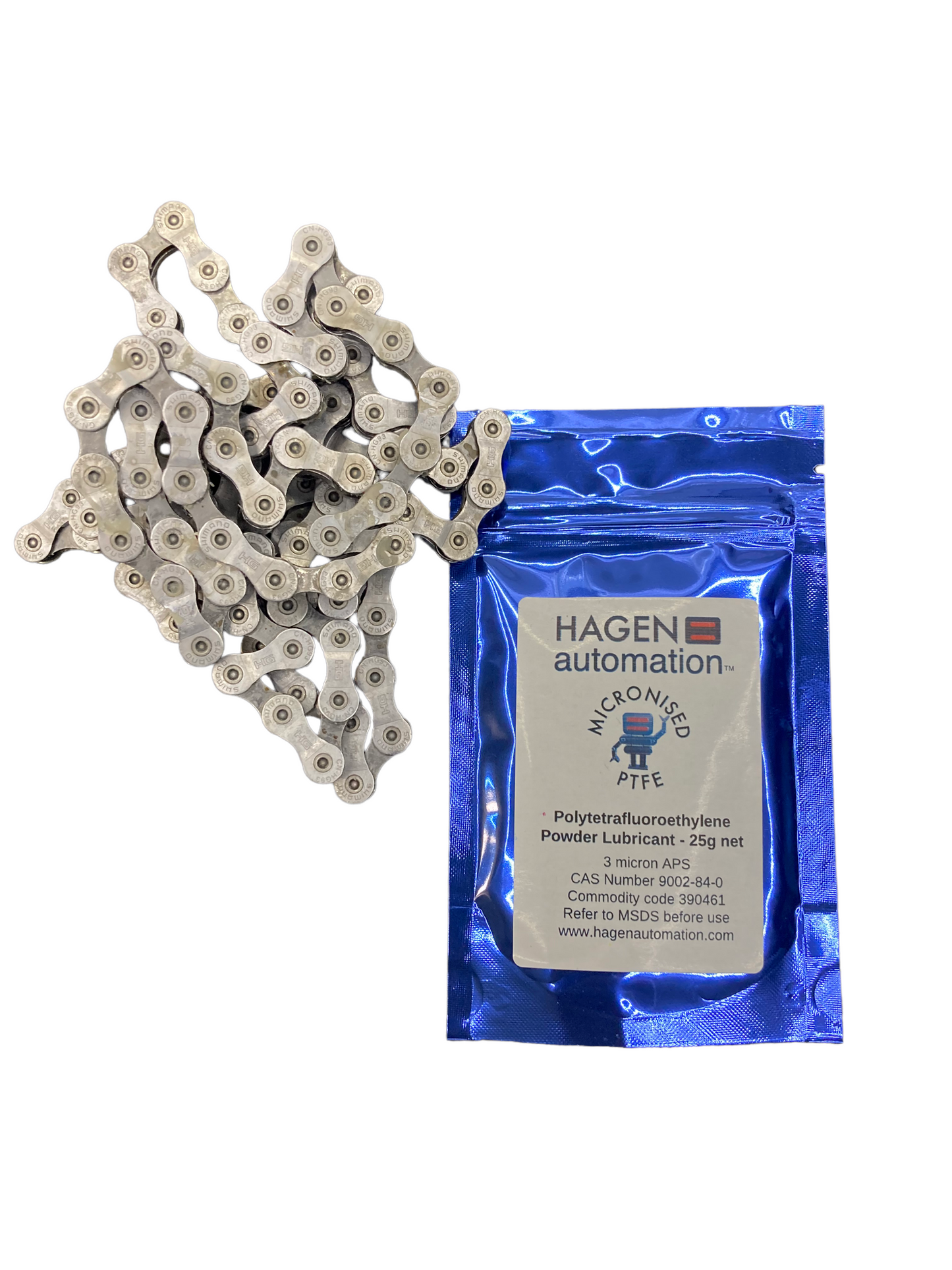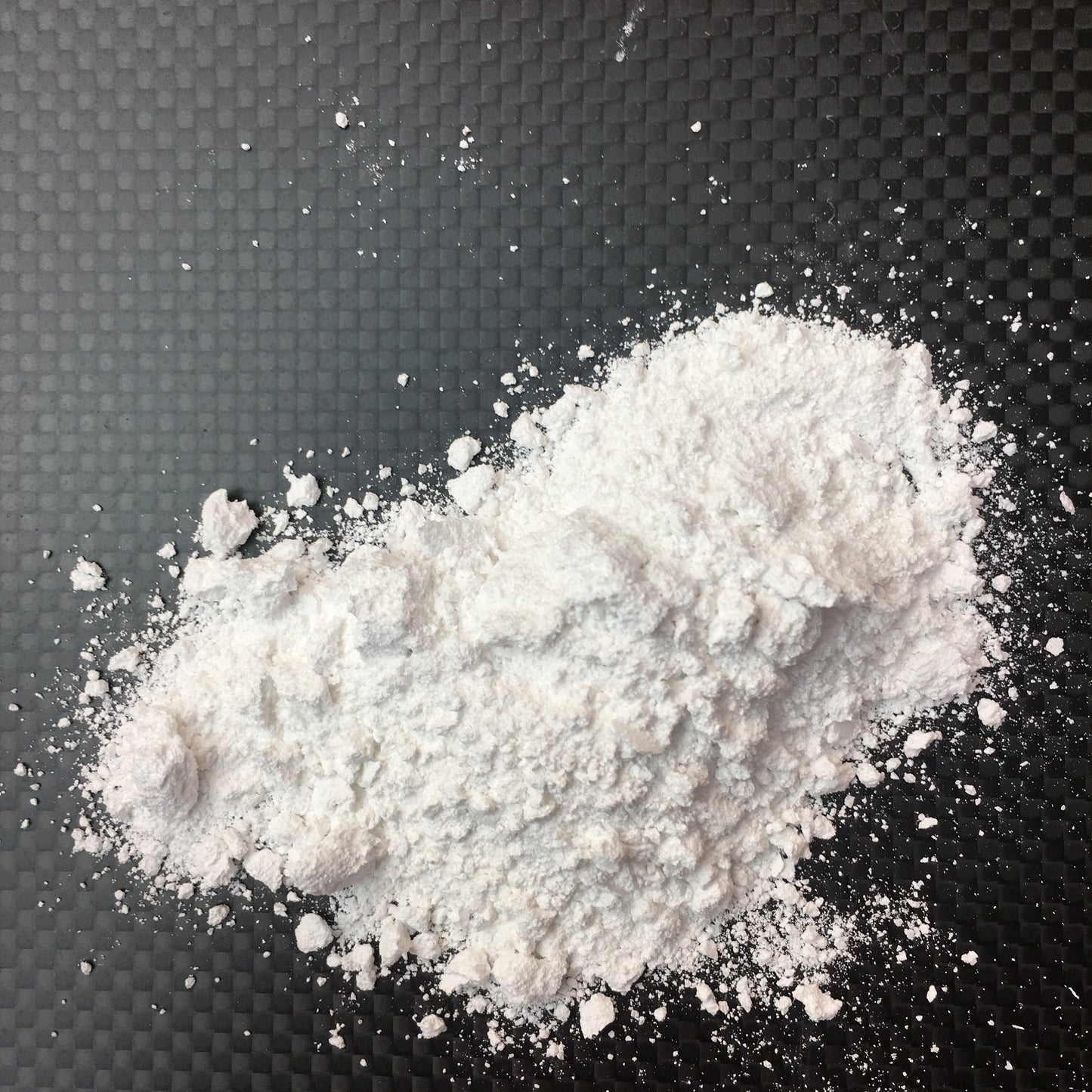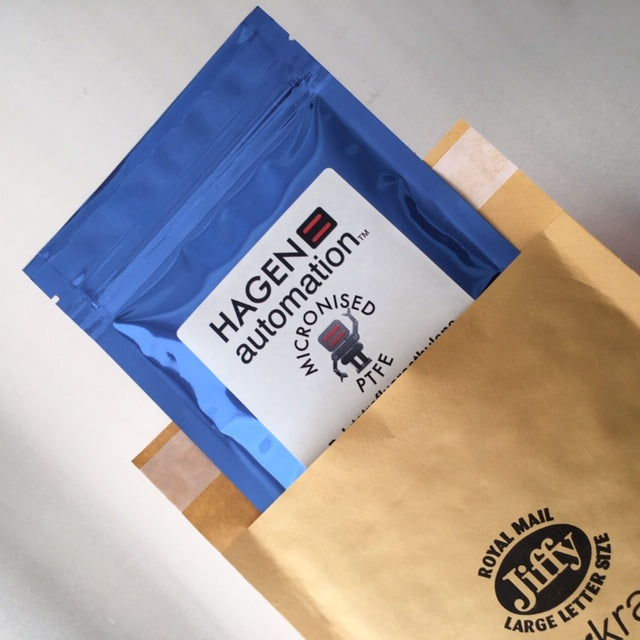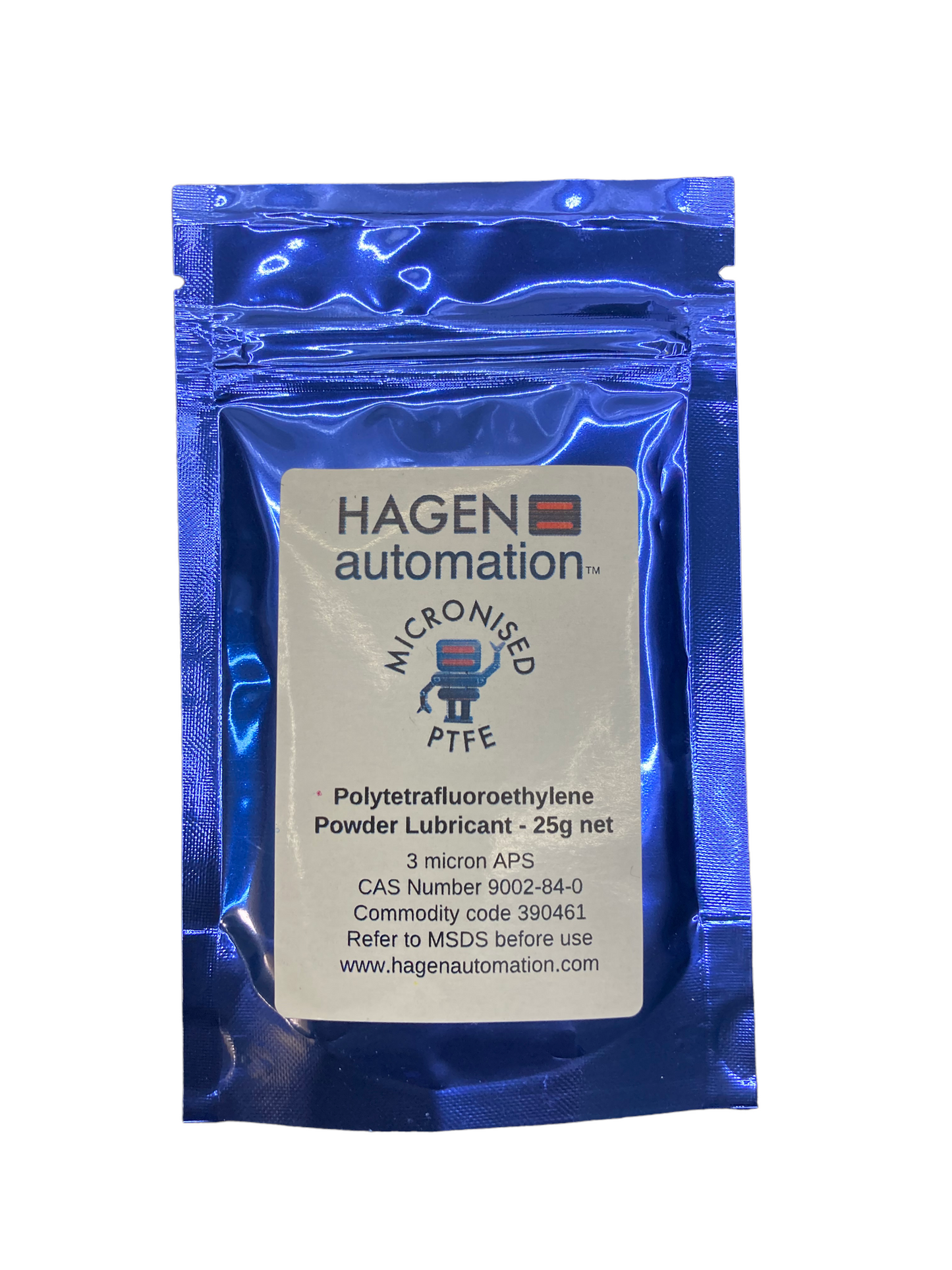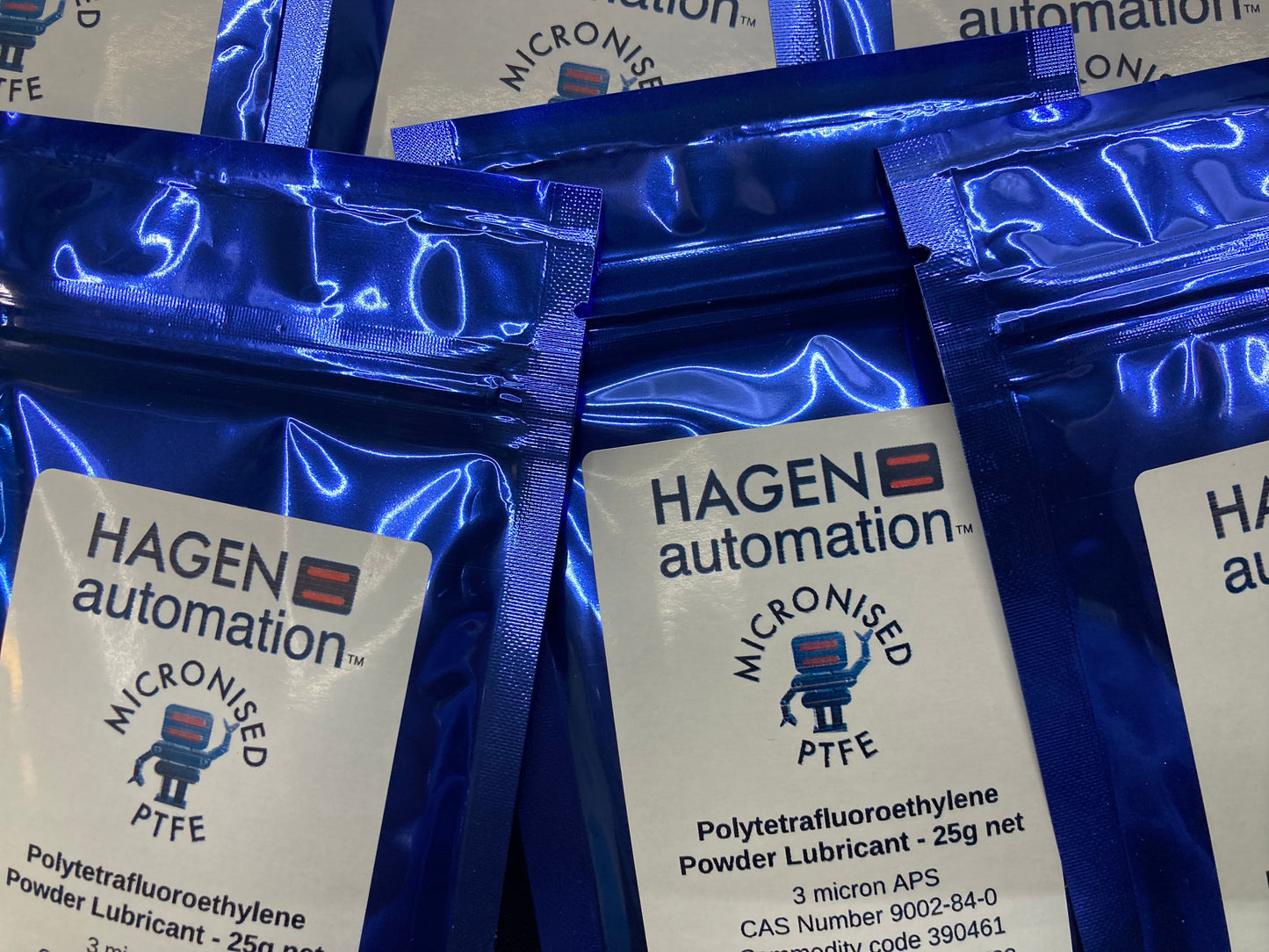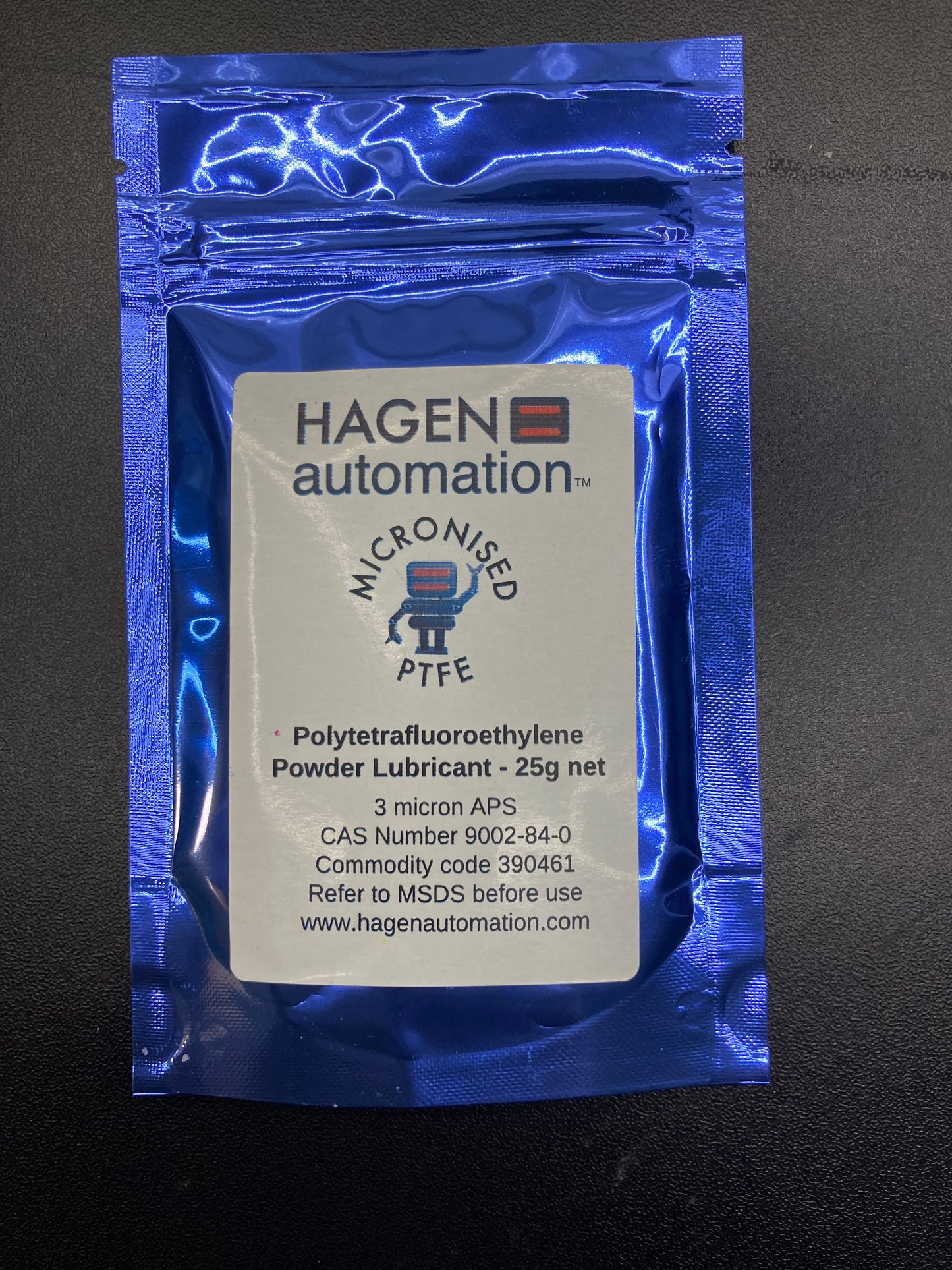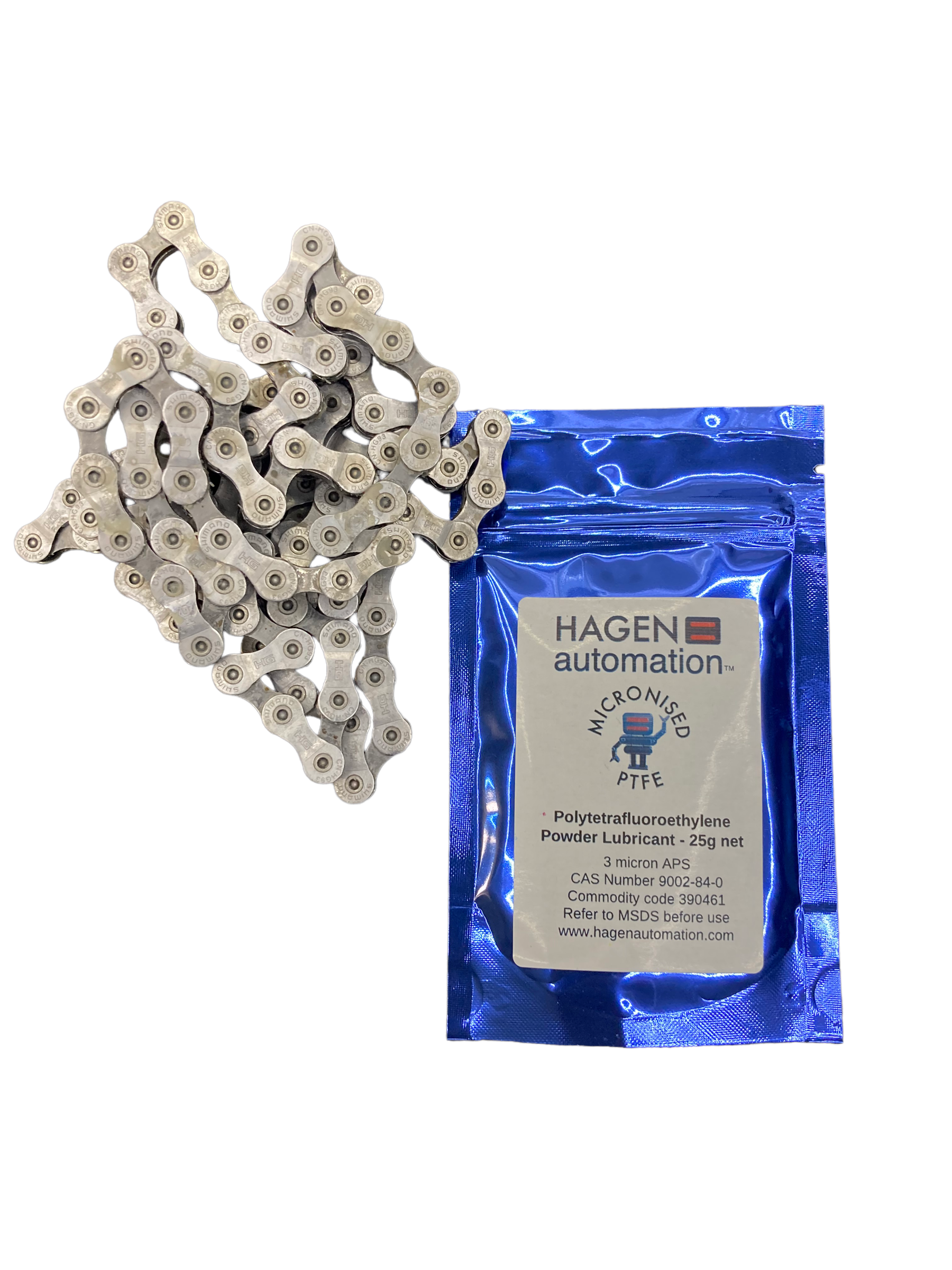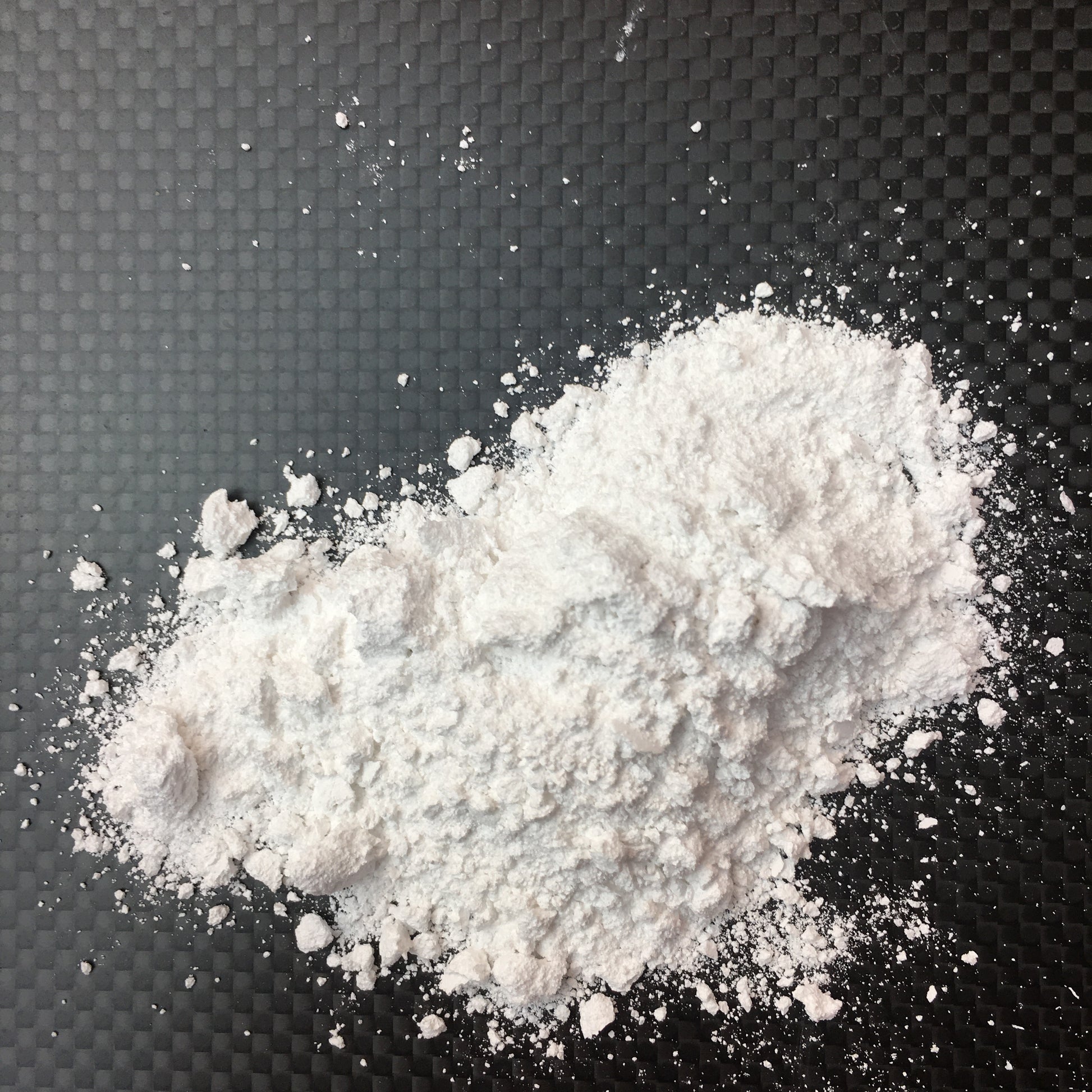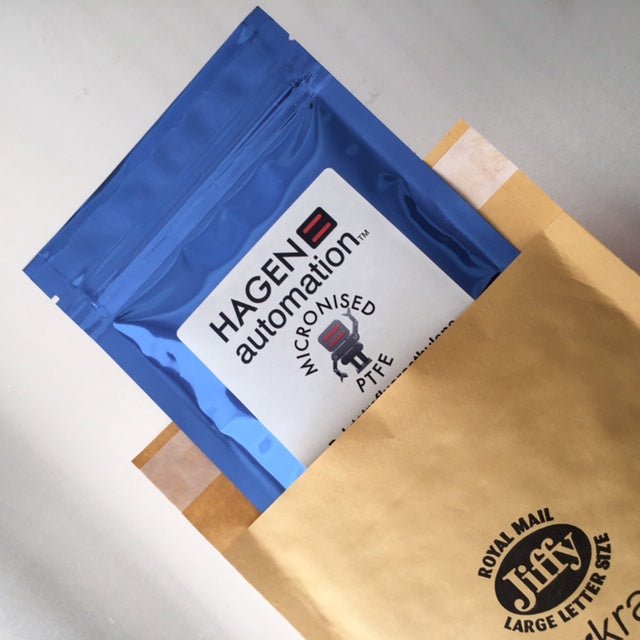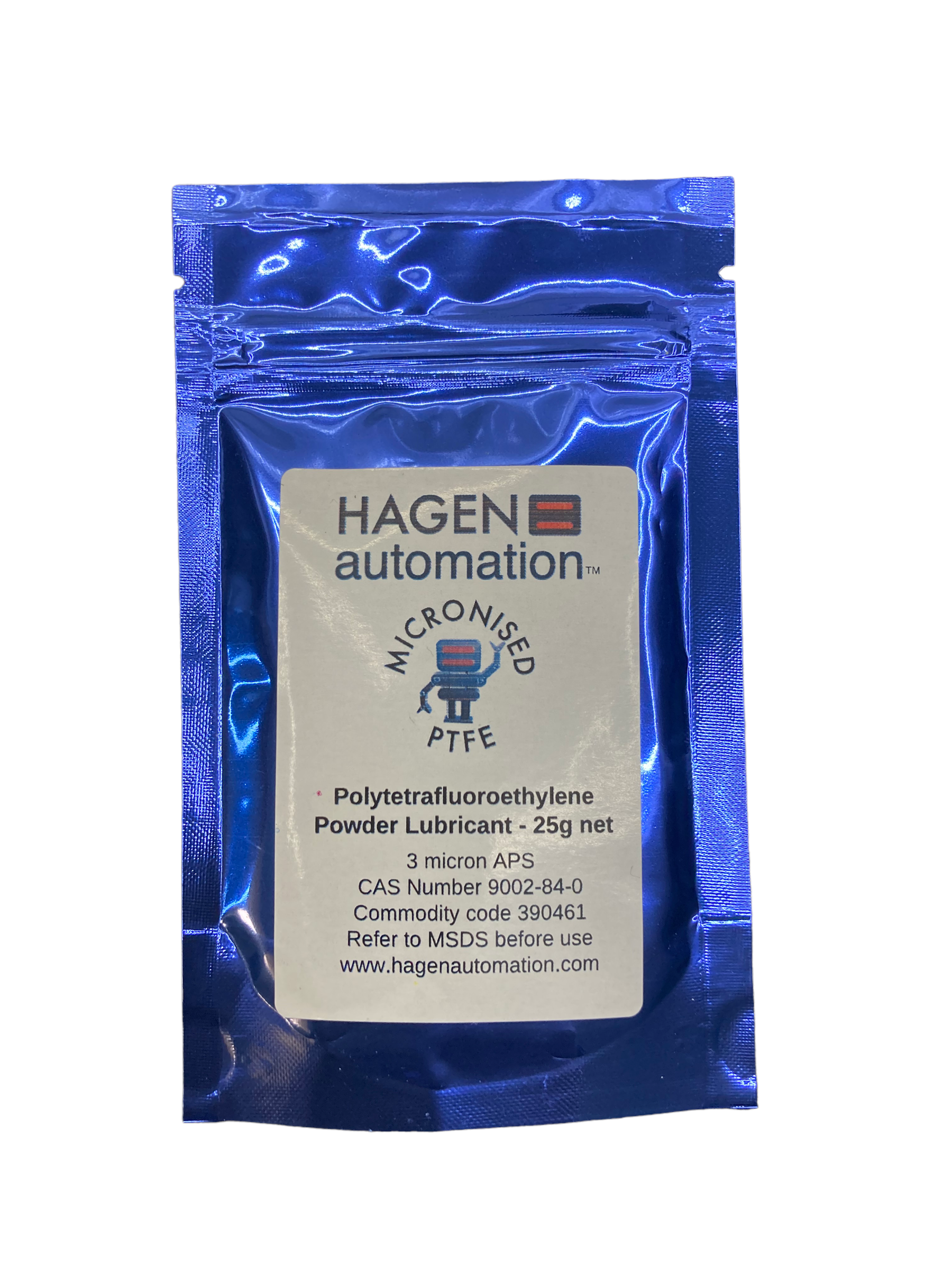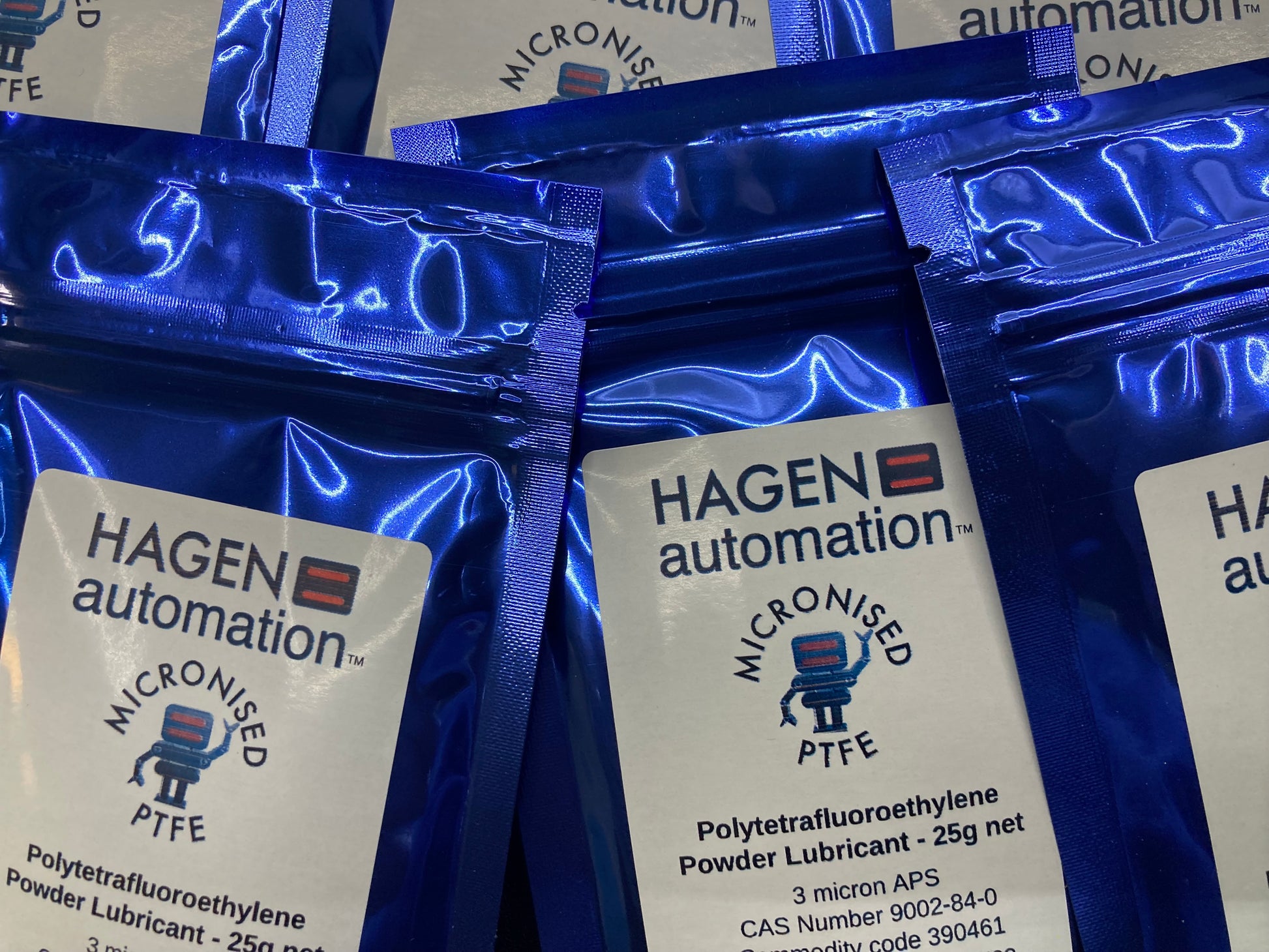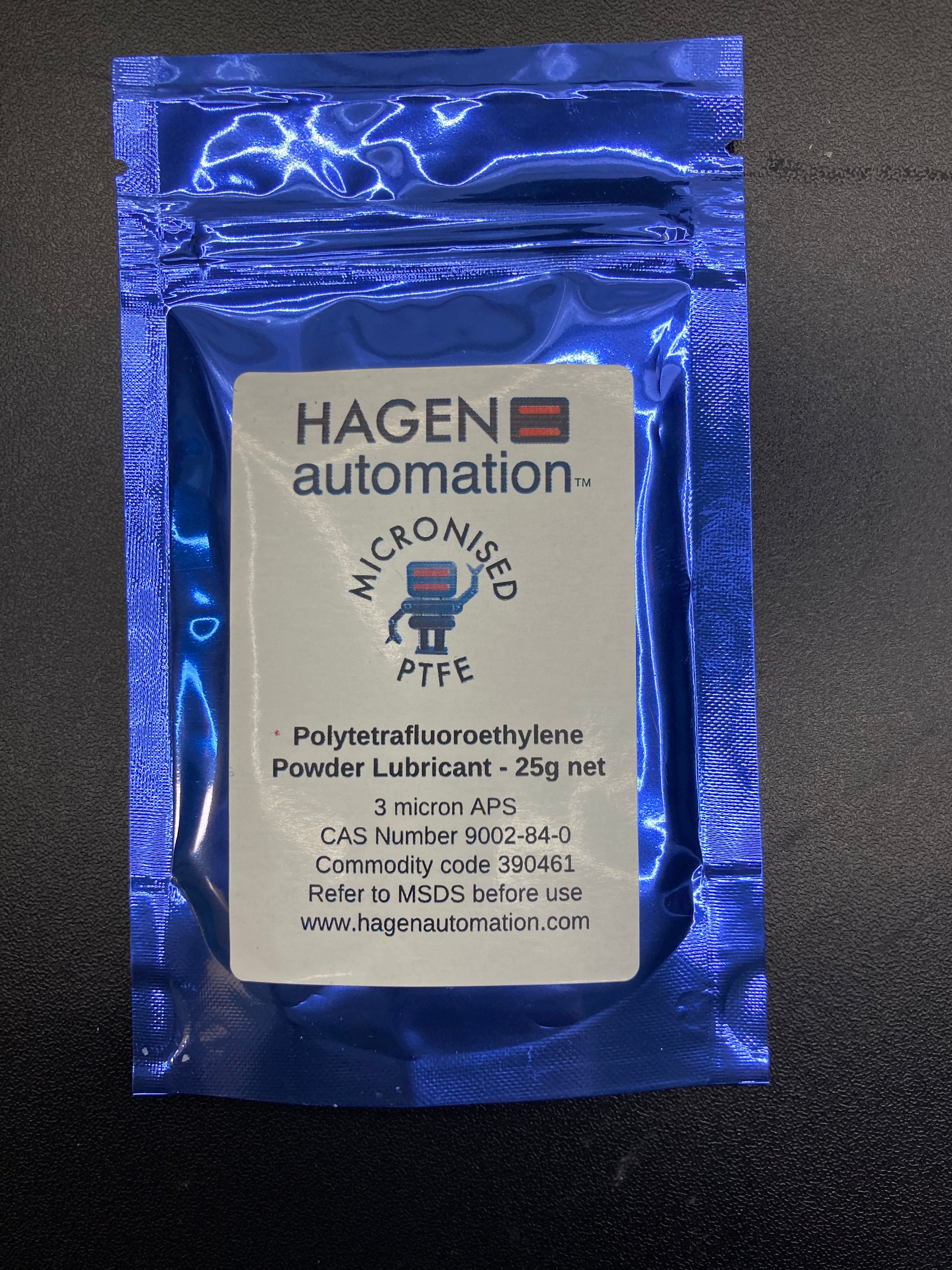1
/
of
6
25g 100% PTFE powder lubricant for cycle chain hot waxing - 3 Micron
25g 100% PTFE powder lubricant for cycle chain hot waxing - 3 Micron
Regular price
£9.99 GBP
Regular price
Sale price
£9.99 GBP
Unit price
/
per
Taxes included.
Couldn't load pickup availability
25g of very high quality PTFE powder - ideal for adding to the wax of your choice for hot waxing cycle chains
Chain waxing shows considerable advantages over wet or dry lubes on bicycle chains. Adding PTFE improves the advantages further delivering power savings of 20 watts while reducing chain wear and the need for maintenance - especially when used in wet, dusty or muddy conditions. These foil packs offer excellent value. 50g is enough to wax a lot of chains.
Waxed chains with PTFE are super clean and can be washed easily without the need for reapplication. They are also quite enjoyably loud! The wax holds the PTFE in place and excludes contaminants from getting into the rollers and pins. It also prevents corrosion even in the harshest of conditions.
There are a lot of recipes for hot waxing cycle chains, but 25g makes a very high performance 10:1 mix with 250g of wax (Can be paraffin wax, hard vegetable waxes, or a blend) or a more standard 20:1 with 1kg of wax. Powdered additives such as Molybdenum Disulphide (Micronised MoS2) and or Tungsten Disulphide (Micronised WS2) may also be added.
- Pure polytetrafluoroethylene - also known as Teflon
- Very fine grade D50 = <3 micron Average Particle Size
- Precision engineering quality, manufactured in Canada, packed in the UK,
- Batch tested and certified for quality and purity.
- Easily meets 2020 EU PFOA limits.
- High Grade PTFE is practically inert and safe
- Service temperature range -240 to +250 degrees C
- Repels moisture, non stick,
- UV resistant
- Very low friction coefficient of just 0.04µ
Micronised PTFE can also be used as a paint additive and dry lube
FAQ:What is hot chain waxing? It is a traditional method of protecting and lubricating chains by dipping them in molten wax. It is exceptionally clean and long lasting with no fling and no "calf tattoos" like you get from chain lubes. It is exceptionally good in dusty or wet conditions as the wax does not move around as much as oil. The downsides are that you need a clean chain to apply to and a way of heating the wax to the right temperature safely. Thankfully readily available, cheap crockpots or slow cookers are perfect for this.
Why add PTFE? PTFE has one of the lowest coefficients of friction of any substance. Discovered by accident in 1938 PTFE is a white waxy substance that repels water and is very chemically stable. It is often marketed under the Teflon trade name. By adding to chain wax it significantly reduces friction, losses and wear.
What wax recipe do you recommend for chains? We really like the Ultimate Chain Wax recipe on the oz cycle youtube channel. Simply 250g of Paraffin wax and 25g of PTFE. Softer waxes such as Beeswax, Soya wax or Carnauba Wax could also be added to make a chain slightly quieter. Other powder lubricants such as Tungsten Disulphide, Molybdenum Disulphide or even hex Boron Nitride could also be added (please see our other listings), but pure PTFE is the simplest and cleanest. it should be noted that a 10:1 PTFE mix is much higher than is available in proprietary waxes.
Do you stock 1.6 Micron? Well, sort of this is! Measured using the inaccurate mesh measurement this would easily 1.6 micron or finer. However using more accurate measuring methods gives us our APS measurement of 3 micron.
Our suppliers do not make 1.6 micron APS powder as it clumps or agglomerates too easily. 3 micron is the finest size for mechanical applications and certainly fine enough for waxing chains. Although we have seen 1.6 micron on the market (usually also saying 3 micron APS?!)this usually means it has been measured using the less accurate technique and we are yet to find a supplier that meets our safety standards that does it this way.
Why is this more expensive than some? Because it has been made and tested to very high standards in Canada and then packed in the UK. It easily meets the safety standards for PFOA levels. It is virgin PTFE, not from reground or remanufactured stock to save costs. A 25g PTFE 250g wax bath is enough to treat and retreat several chains. With some chains costing over £100 it is well worth doing well and safely. Also you save on applying and reapplying traditional lubes.
Can I add it to car engine oil? No. PTFE should not be overheated. In a car engine it will burn potentially causing problems. Look at other lubricants such as WS2, hBN or MoS2 that can handle the heat. For the same reason PTFE should not be used to coat air rifle pellets or bullets.
Is it bad for the environment? Chains treated with PTFE wax last much longer than others reducing costs and environmental impact. Wax stays put and is not spread about the environment like traditional lubes. PTFE is practically inert and, as long as it is very low PFOA, safe. PTFE is commonly used for medical implants! Paraffin wax itself is noted for its stability (named for the latin para=does not + fin=react with) and is less dangerous for sensitive environments than oils.
Why add PTFE? PTFE has one of the lowest coefficients of friction of any substance. Discovered by accident in 1938 PTFE is a white waxy substance that repels water and is very chemically stable. It is often marketed under the Teflon trade name. By adding to chain wax it significantly reduces friction, losses and wear.
What wax recipe do you recommend for chains? We really like the Ultimate Chain Wax recipe on the oz cycle youtube channel. Simply 250g of Paraffin wax and 25g of PTFE. Softer waxes such as Beeswax, Soya wax or Carnauba Wax could also be added to make a chain slightly quieter. Other powder lubricants such as Tungsten Disulphide, Molybdenum Disulphide or even hex Boron Nitride could also be added (please see our other listings), but pure PTFE is the simplest and cleanest. it should be noted that a 10:1 PTFE mix is much higher than is available in proprietary waxes.
Do you stock 1.6 Micron? Well, sort of this is! Measured using the inaccurate mesh measurement this would easily 1.6 micron or finer. However using more accurate measuring methods gives us our APS measurement of 3 micron.
Our suppliers do not make 1.6 micron APS powder as it clumps or agglomerates too easily. 3 micron is the finest size for mechanical applications and certainly fine enough for waxing chains. Although we have seen 1.6 micron on the market (usually also saying 3 micron APS?!)this usually means it has been measured using the less accurate technique and we are yet to find a supplier that meets our safety standards that does it this way.
Why is this more expensive than some? Because it has been made and tested to very high standards in Canada and then packed in the UK. It easily meets the safety standards for PFOA levels. It is virgin PTFE, not from reground or remanufactured stock to save costs. A 25g PTFE 250g wax bath is enough to treat and retreat several chains. With some chains costing over £100 it is well worth doing well and safely. Also you save on applying and reapplying traditional lubes.
Can I add it to car engine oil? No. PTFE should not be overheated. In a car engine it will burn potentially causing problems. Look at other lubricants such as WS2, hBN or MoS2 that can handle the heat. For the same reason PTFE should not be used to coat air rifle pellets or bullets.
Is it bad for the environment? Chains treated with PTFE wax last much longer than others reducing costs and environmental impact. Wax stays put and is not spread about the environment like traditional lubes. PTFE is practically inert and, as long as it is very low PFOA, safe. PTFE is commonly used for medical implants! Paraffin wax itself is noted for its stability (named for the latin para=does not + fin=react with) and is less dangerous for sensitive environments than oils.
Share
